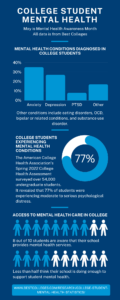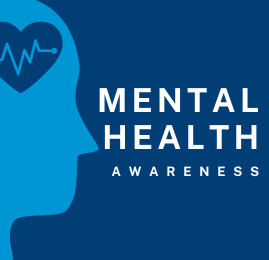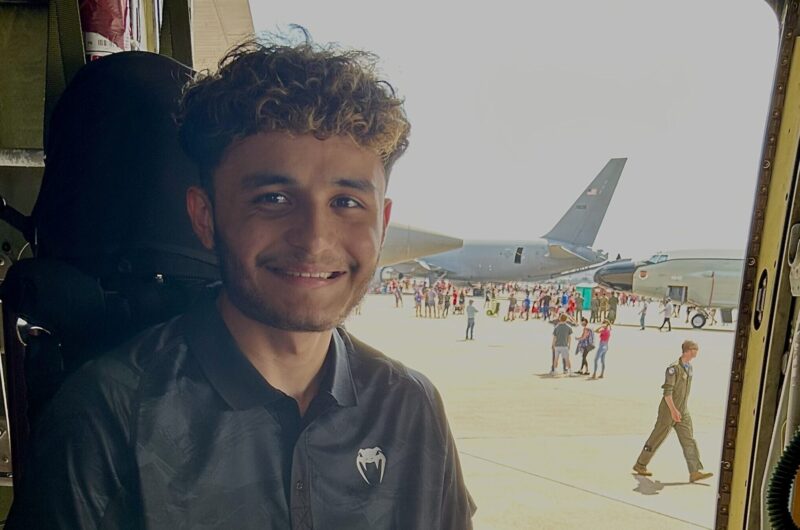
Over the past month, College Possible Omaha recognized Mental Health Awareness month, which aims to reduce the stigma around seeking mental health assistance. Pressure stemming from academics, social expectations, financial barriers, and personal situations may cause young adults to experience a range of mental health concerns, including depression, anxiety disorders and eating disorders. These can have a negative impact on a student’s academic performance, social life, and overall wellbeing. We talked to one former College Possible AmeriCorps coach who provided some more insight into how in and outside pressures show up during college.
Asking for mental health support should happen early and often
Champion for College Possible and mental health counselor at Creighton University, Maddie Moore, emphasizes the importance of seeking support and removing judgment associated with asking for help. “You don’t have to be completely falling apart to deserve support,” she says. “A lot of people associate judgment with asking for help and getting help as if it’s a sign of weakness.”
“College is a time in life where people are experiencing a lot of ups and downs because it is such a big transition. It’s common to encounter feelings and situations that may be entirely new to them,” she says. “Everybody needs help sometimes and we can’t always solve problems on our own.” Moore also emphasizes the significance of being proactive and not waiting until one cannot function before reaching out for help.
Based on a 2022 study conducted by the American College Health Association, which surveyed over 54,000 students, a notable portion of the participants received diagnoses of anxiety (35%), depression (27%), trauma or stressor-related disorders such as PTSD (8%), and other mental health conditions (17%). Additionally, the study unveiled that a substantial majority (77%) of the surveyed students encountered moderate to severe psychological distress.
Many colleges and universities across the country offer mental health resources and assistance to support students’ wellbeing. These include counseling services, support groups, workshops, crisis hotlines, and access to psychiatric professionals. These resources aim to provide students with the necessary support and tools to navigate the challenges of college life effectively.
College Possible partner colleges provide an array of services for students
Each of our partner institutions offers various counseling and mental health services:
- Doane University offers free counseling services at the Crete Counseling Center for stress management, test-taking, relationships and family, grief, depression, and other concerns. For students attending the Lincoln, Omaha or online campus, a counselor is available for in-person or telehealth counseling with all enrolled nonresidential students.
- Metropolitan Community College has a Student Wellness Initiative to support students in all areas of wellbeing through events, training, speakers, virtual learnings and more.
- Nebraska Wesleyan offers free personal counseling by licensed mental health practitioners. Currently registered, full-time students in the undergraduate program are eligible for on-campus counseling services. Wesleyan also offers a free, anonymous mental health screening tool that screens for depression, anxiety, PTSD, alcohol and substance abuse, overall wellbeing, and other concerns.
- University of Nebraska Omaha offers free Counseling and Psychological Services (CAPS) that are available to all enrolled students. UNO offers short-term counseling, consultation, emergency services, group counseling, couples/partners counseling, wellness education, and more. UNO also has on-campus support groups and a virtual support hour.
- Wayne State College offers free counseling services to treat issues such as student adjustment, stress, grief, sexuality, mental illness, and other concerns. Wayne hosts several programs throughout the year on mental health first aid, suicide prevention, healthy relationships programs and alcohol awareness activities.
Beyond campus grounds, mental health resources are widely available
Even if you don’t attend a college, university or partner institution, there are resources available online and in-person. These resources include:
- ActiveMinds: A nonprofit organization that provides resources and support for young adults seeking mental health assistance.
- National Alliance on Mental Illness: An organization that provides resources, data, and support for anyone seeking mental health assistance.
- A primary care provider can provide assessment, diagnosis, support, and referrals to assist in treating mental health conditions.
Mental health awareness is of utmost importance in our society. It is crucial to break down the stigma surrounding mental health and promote open conversations, empathy, and understanding. By recognizing the significance of mental wellbeing, we can foster a supportive and inclusive environment where individuals feel safe to seek help and access the resources they need.
Let us strive to create a world where mental health is prioritized, where compassion and care are readily available, and where everyone feels empowered to embark on a journey of healing and resilience. Remember, together we can make a difference by spreading awareness, advocating for change, and supporting one another on the path to mental wellbeing.



